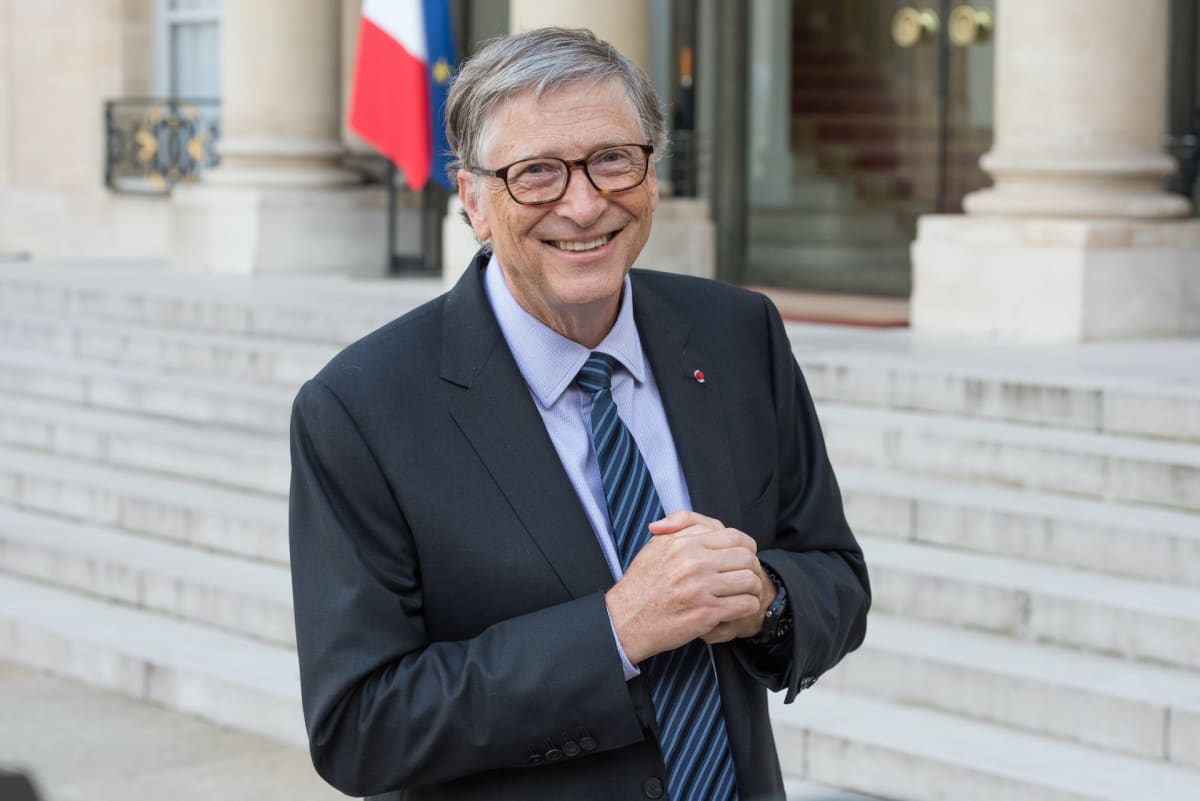
In the rivalry between Elon Musk and Bill Gates, it is the co-founder of Microsoft who has just won the latest round.
But that doesn't mean he'll have the last laugh, because there will be new episodes in this clash of two tech billionaires. It took an ugly turn last year, after Musk learned that Gates shorted Tesla, the EV maker. Shorting means betting that the stock will drop in the short term.
The latest round of the epic fight is taking place in China, the world's second-largest economy. Since Beijing lifted the lockdowns it put in place to fight the spread of covid-19, the country has been trying to attract foreign investors and businesses to help revive its economy.
The efforts to persuade international companies to continue investing in China are led by Premier Li Qiang. The idea is to show that the country remains attractive for foreign investment and to thwart the rise of India, Taiwan and even Vietnam as alternatives.
CEOs in Beijing
The shutdown of China had indeed turned the supply chains of most multinationals upside down. Those companies -- Apple (AAPL) is a prime example -- have been seeking to reduce their dependence on China going forward.
To this must be added China's geopolitical tensions with the U.S., which are causing speculation about a confrontation between the two leading world powers.
The symbol of Beijing's charm offensive translates into a flurry of visits from the who's who of CEOs of the multinationals that dominate the global economy.
In March, Tim Cook, the CEO of Apple, was in the country where he attended the China Development Forum. He was recently followed by Jamie Dimon, CEO of JPMorgan Chase, America's largest bank in terms of assets, and Musk, the richest man in the world who is involved in five companies -- Tesla (TSLA), Twitter, SpaceX, Neuralink and The Boring Company.
None of these business stars met with Chinese President Xi Jinping.
"The two sides exchanged views on issues such as Apple’s development in China and the stabilization of the industrial and supply chains,” Wang Wentao, China’s Ministry of Commerce, said in a statement after his meeting with Cook.
Musk met in person with three senior government officials, China's foreign, commerce and industry ministers. He also reportedly met with Chinese Vice Premier Ding Xuexiang.
"It is worth noting that on my recent trip to China I went to senior leadership there. I think we had some very productive discussions on artificial intelligence risks, and the need for some oversight or regulation," the billionaire said during a Jun. 5 event on Twitter Spaces.
Just days after Dimon and Musk's visits, Gates has just arrived in Beijing.
"I’ve just landed in Beijing for the first time since 2019, where I’m excited to visit with partners who have been working on global health and development challenges with @gatesfoundation for more than 15 years," the philanthropist posted on Twitter on Jun. 14.
Gates Has a One-on-One With Xi
More interestingly, Gates got what none of his peers got: he met with President Xi on Jun. 16. It was a one-on-one encounter.
"I am very happy to see you. We haven’t seen each other for more than three years … and you are an old friend of ours,” Xi told Gates, according to Chinese state media.
The Chinese president called the philanthropist "the first American friend I’ve seen this year.”
"I always believe that the foundation of the US-China relationship is in the people. I am placing my hope in the American people,” the Chinese leader was quoted as saying.
He asked Gates to to help promote US-China relations.
This was Xi's first meeting with a foreign private entrepreneur in years.
The philanthropist is not in China to represent Microsoft (MSFT). The billionaire left the software and cloud giant's board of directors in 2020, to focus on philanthropy. He last met Xi in 2015.
On February 2020, Xi responded to Gates after receiving a letter from the billionaire entrepreneur offering financial assistance in the face of the coronavirus.
In his letter dated Feb. 20, the Chinese president wrote that he "deeply" appreciated the act of generosity from the Bill & Melinda Gates Foundation and their solidarity with the Chinese people at such a delicate time.
Two weeks earlier, Gates had said in a letter that the Bill & Melinda Gates Foundation was committing millions in emergency funding, part of which would be dedicated to helping China foster epidemiological research, emergency response as well as the research and development of drugs, vaccines and diagnostics.
Nothing points to what Xi and Gates will discuss when they meet this Friday. But on Twitter, Gates wrote: "The world was making huge progress in reducing child deaths and poverty, but global crises set us back."
He continued: "African countries are particularly vulnerable, with high food prices, crushing debt, and increasing rates of TB and malaria. That’s why I’m heading to West Africa next."
He ended by praising China.
"Solving problems like climate change, health inequity and food insecurity requires innovation. From developing malaria drugs to investing in climate adaptation, China has a lot of experience in that. We need to unlock that kind of progress for more people around the world."







